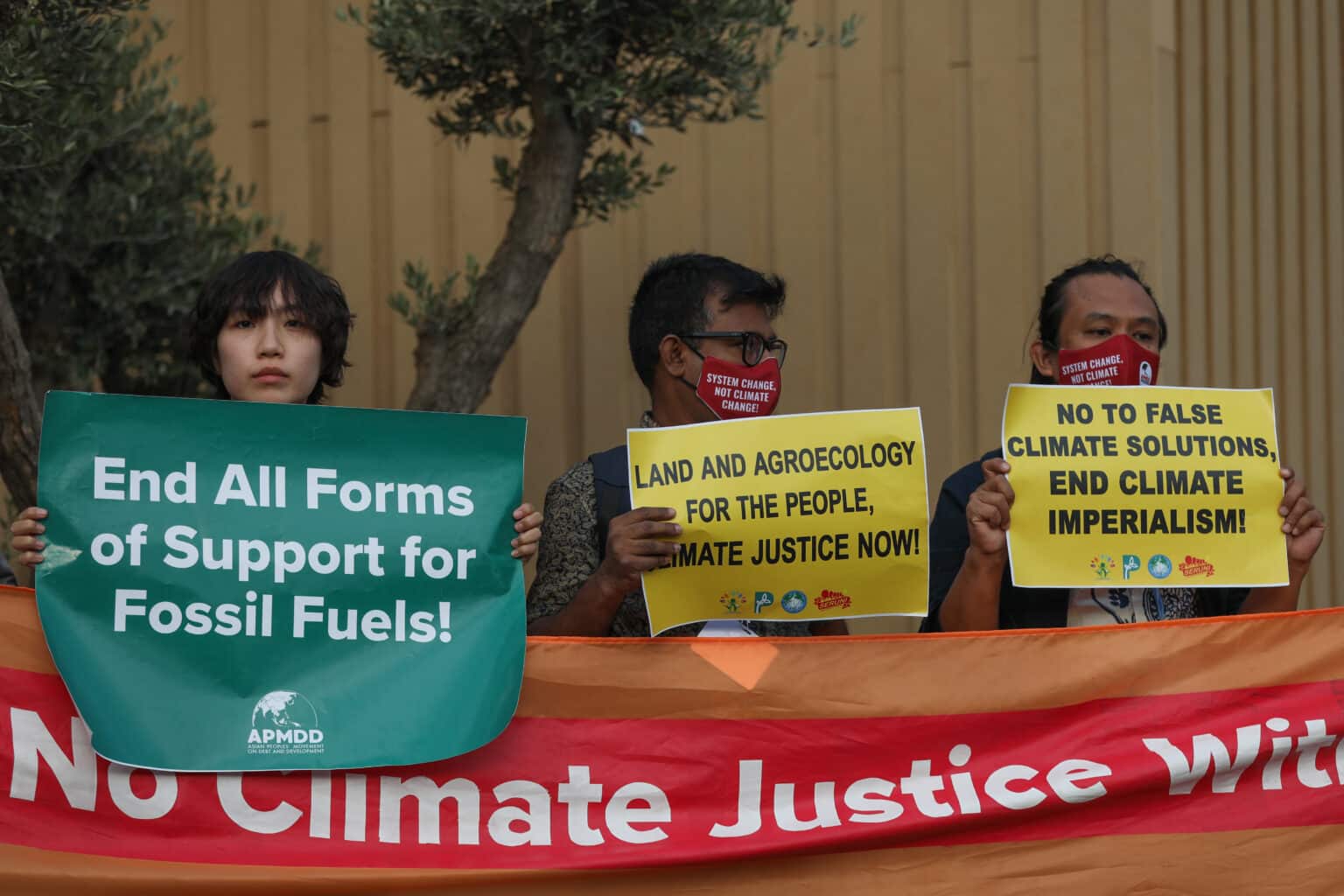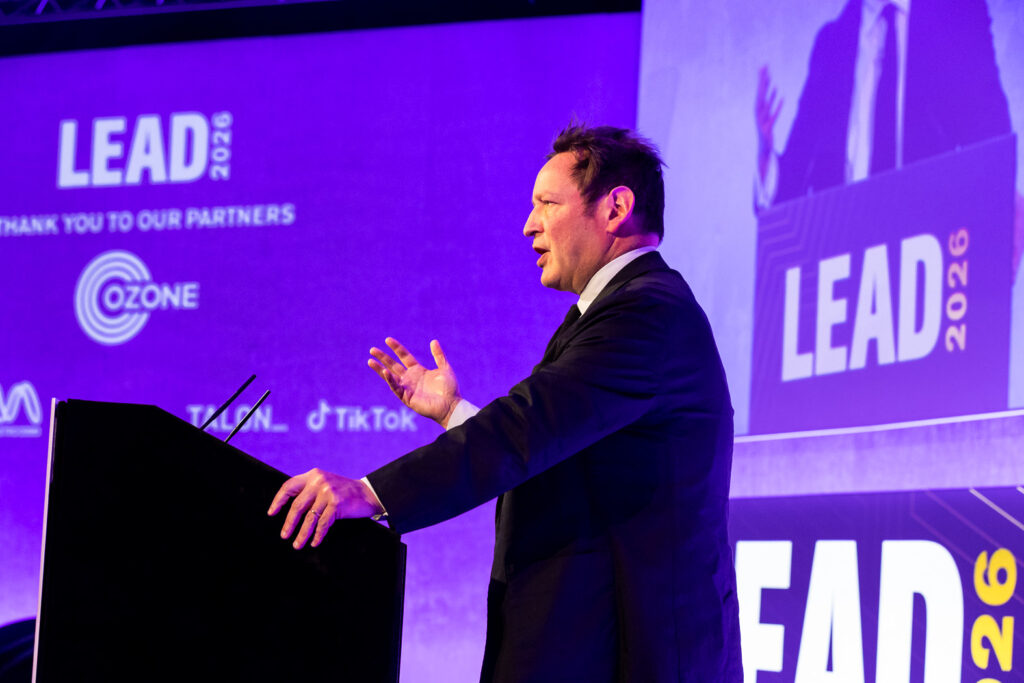By Alice Harrison, Pascoe Sabido, and Rachel Rose Jackson
Tobacco lobbyists wandering around a conference on lung cancer. Arms dealers selling weapons at a peace conference. Drinks companies at an Alcoholics Anonymous meeting.
Thankfully, the absurdity of these three scenarios is obvious to all. Yet 636 lobbyists for the fossil fuel industry are conspicuously present at this year’s crucial COP27 climate talks, according to an analysis of the delegates to COP27, compiled jointly by the NGOs Global Witness, Corporate Accountability, and Corporate Europe Observatory.
The analysis reveals that there are well over 100 more lobbyists for the fossil fuel industry at Sharm el-Sheikh than at last year’s climate summit in Glasgow. In fact, there are more representatives of the polluting interests of oil and gas at COP27 than every single national delegation bar the United Arab Emirates — including all countries on the African continent.
So much for the “African COP.” It’s yet again a festival of polluters.
As the world watches, expecting action from world leaders, the question has to be posed: How can COP27 succeed when those responsible for the climate crisis are allowed in?
In 2018, fossil fuels and industry were responsible for 89 percent of global CO2 emissions. The climate crisis is overwhelmingly caused by the global addiction to oil, gas, and coal. The only way to protect our planet and its inhabitants from the dire consequences already being felt by so many is to stop burning them.
The industry knows this. It is the very reason they register in droves for events like COP27 and spend millions every year trying to convince us as we scroll through Twitter and Instagram that they are clean and green. The reality is they are anything but.
Public relations for this year’s COP is in fact being conducted by Hill+Knowlton, the PR firm notorious for inventing the “tobacco playbook,” which the fossil fuel industry then adopted to discredit the science regarding the harms of burning fossil fuels. To add salt to the wound, Hill+Knowlton also does PR for the American Petroleum Institute, a powerful fossil fuel lobby group, as well as Saudi Aramco and Exxon, two of the top five global polluters.
As in prior years, the fossil fuel industry is using the annual climate summit to trumpet voluntary, non-binding, and often deeply ineffectual initiatives aimed at distracting from the urgent need for laws and policies that will keep fossil fuels in the ground. One such example are corporate “net zero” initiatives, which are fraught with conflicts of interest.
This is an industry that is desperately trying to cling on to its position of privilege and power in a world that increasingly understands the truth about its practices. And this is truer than ever as fossil fuel companies rake in the cash whilst citizens suffer from a broken energy system that is driving millions into poverty.
Perhaps no continent demonstrates this better than Africa. Though contributing very little to the climate crisis, many African countries are being wracked by some of its most severe impacts. Fossil fuel corporations have historically extracted great natural wealth from these countries, and returned far more by way of climate harms than support for addressing the resulting loss and damage.
At COP27 global south voices are being drowned out, despite being among the worst affected. The NGO analysis reveals that there are more fossil fuel lobbyists registered than representatives of the 10 countries most affected by climate change: The Bahamas, Bangladesh, Haiti, Mozambique, Myanmar, Nepal, Pakistan, the Philippines, Puerto Rico, and Thailand.
In Europe, as millions struggle with rising energy bills that threaten to plunge them into poverty, companies like BP and Shell are racking up record profits, benefitting from the very same system that is causing hardships for so many. Meanwhile Putin continues his invasion of Ukraine, boasting a war chest that is almost half-funded by revenues from the country’s oil and gas industry.
And so the veil has been lifted: Renewable energy is now cheap and readily available but fossil fuel companies are clinging to power. Sadly, COP27 is providing a lifeline for the industry.
This industry, and the governments that do its bidding, continue to argue that oil and gas companies are vital stakeholders in their own regulation, but what progress has this led to so far? What are the incentives for the industry and its proxies to transform the global energy system away from their core product? Do we not now have enough documentary evidence that this industry will lie, deceive, and bully any effort to genuinely rein in global emissions?
There is an important global precedent for insulating the international climate treaty from the industry that has made it necessary: the Framework Convention on Tobacco Control. This global tobacco treaty is on track to save some 50 million lives by 2050, thanks to controls on tobacco industry interference. Civil society has put forward a comprehensive framework for the global climate treaty underlying the Paris Agreement that builds on this and other precedents. And organizations from across the globe are providing the public support to do what should have been done 30 years ago: kick big polluters out of climate talks.
At the start of COP27, UN Secretary General Antonio Guterres said that the world is on the “highway to climate hell.” He’s right. If we want to slam our feet on the brakes and turn this around, we need to cut fossil fuel interests out of climate policy.
Alice Harrison is a fossil fuels campaign leader at Global Witness, Pascoe Sabido is a researcher and campaigner at Corporate Europe Observatory, and Rachel Rose Jackson is a director of climate research and policy at Corporate Accountability.
Subscribe to our newsletter
Stay up to date with DeSmog news and alerts






